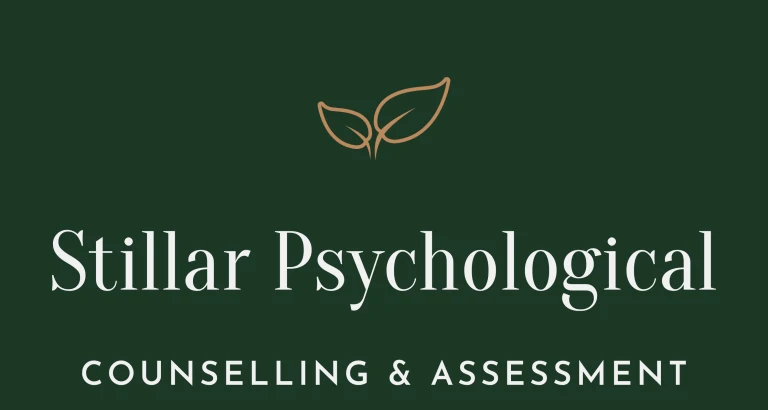Mental health therapy is an essential resource that provides various approaches to help individuals address emotional challenges and pursue personal growth, ultimately leading to more fulfilling lives. Therapy provides a safe space for individuals to explore their feelings and experiences, guided by a compassionate professional. One can gain valuable insights and skills that contribute to long-term emotional well-being and a more fulfilling life. This guide explores some effective types of therapy that can provide significant benefits for those looking to improve their mental health.
Emotion-Focused Therapy
Emotion-Focused Therapy (EFT) is a therapeutic approach that emphasizes the role of emotions in human experience and psychological health. EFT focuses on helping clients understand and transform their emotional responses. The therapy involves identifying and processing emotions to resolve internal conflicts, increase self-awareness, and promote emotional healing.
Through techniques like experiential exercises and empathy, therapists guide clients to express and regulate their emotions effectively. EFT is particularly beneficial for individuals dealing with depression, anxiety, and relationship issues, as it aims to create positive emotional changes and improve overall well-being.
Acceptance and Commitment Therapy
Acceptance and Commitment Therapy (ACT) is a form of psychotherapy that encourages individuals to accept their thoughts and feelings rather than fighting or feeling guilty for them. ACT uses mindfulness strategies to help clients live in the present moment and commit to actions that align with their values.
The therapy focuses on enhancing psychological flexibility, which allows individuals to adapt to various situations without being overwhelmed by negative thoughts and emotions. ACT is effective for a wide range of mental health issues, including anxiety, depression, and chronic pain, promoting a more meaningful and engaged life.
Eye Movement Desensitization and Reprocessing
Eye Movement Desensitization and Reprocessing (EMDR) is a therapeutic method aimed at reducing the distress linked to traumatic memories. This therapy involves guiding clients to recall traumatic events while the therapist manages their eye movements.
This technique is thought to reprocess the memories, diminishing their emotional intensity. EMDR is particularly useful for treating post-traumatic stress disorder (PTSD), anxiety, and phobias. The therapy consists of eight structured phases: history taking, preparation, assessment, desensitization, installation, body scan, closure, and reevaluation. EMDR aids clients in integrating traumatic memories into their life story, fostering substantial emotional recovery.
Dialectical Behavior Therapy
Dialectical behavior therapy (DBT) combines cognitive-behavioral techniques with mindfulness practices to help individuals regulate emotions. The therapy is particularly effective for those experiencing intense emotional reactions and difficulty managing distress. DBT teaches skills such as emotional regulation, distress tolerance, and interpersonal effectiveness.
During DBT sessions, people engage in mindfulness exercises to stay anchored in the present moment, promoting a sense of stability and calm. This technique aids in curbing spontaneous actions and nurturing emotional equilibrium, ultimately enhancing mental wellness and holistic health.
Art Therapy
Art therapy provides a unique avenue for expressing and processing emotions through creative activities. This therapeutic approach is particularly helpful for individuals who find it challenging to articulate their feelings verbally. Art therapy can help individuals explore their inner world and gain new perspectives on their experiences.
By engaging in artistic activities, individuals can express complex emotions in a non-verbal way. This form of therapy allows for the safe exploration of feelings and can lead to significant emotional breakthroughs and healing.
Group Therapy
In the realm of group therapy, a nurturing atmosphere welcomes individuals to exchange stories and glean wisdom from peers navigating parallel journeys. The therapeutic method cultivates a feeling of belonging and opens avenues for forging meaningful connections. Effective in tackling diverse challenges like addiction, depression, and anxiety, group therapy fosters a space where collective understanding and camaraderie thrive.
Within the group therapy dynamic, participants draw strength from one another’s encouragement and collective revelations. This synergy empowers individuals to shed feelings of solitude amidst their trials, fostering the emergence of coping mechanisms within a compassionate community framework.
Exposure Therapy
Exposure therapy is designed to help individuals confront and overcome specific fears and phobias. This approach involves gradual and controlled exposure to the feared object or situation, particularly effective for treating anxiety disorders and post-traumatic stress disorder (PTSD). Individuals will learn to face their fears in a safe and supportive environment. This process helps diminish the fear response and empowers individuals to manage their anxiety more effectively, leading to improved quality of life.
Solution-Focused Therapy
Solution-focused therapy emphasizes finding quick and practical solutions to current problems. It is goal-oriented and concentrates on identifying and utilizing individual strengths to achieve positive outcomes. Solution-focused therapy is suitable for individuals looking for brief and effective interventions to address specific issues.
In solution-focused therapy sessions, participants work with their therapist to set realistic goals and develop actionable steps to achieve them. This forward-looking way helps clients quickly resolve issues and enhances their overall mental well-being.
Play Therapy
Play therapy is a therapeutic approach primarily used with children, enabling them to express their feelings, thoughts, and experiences through play. By utilizing play, therapists create a safe and supportive environment where children can express their inner thoughts and feelings naturally and comfortably. This method is particularly beneficial for children who may not yet have the verbal skills to articulate their experiences and emotions.
Through play therapy, children can process and make sense of complex emotions, traumas, and life events in a manner that feels natural to them. The therapeutic play activities are designed to help children work through feelings of anxiety, depression, grief, and anger, allowing them to externalize and address these emotions constructively.
Sand Tray Therapy
Sand tray therapy is a therapeutic technique that involves the use of a sandbox and miniature figures to create scenes that reflect a person’s inner thoughts, struggles, and experiences. This nonverbal therapy allows clients to express themselves in a safe and tangible way.
The therapist observes and facilitates the process, helping the client to explore and understand their inner world. Sand tray therapy is beneficial for individuals of all ages, particularly those who have experienced trauma or have difficulty expressing themselves verbally. It aids in uncovering subconscious thoughts and feelings, fostering insight, healing, and personal growth.
Experience Personalized Mental Health Care at Stillar Psychological
At Stillar Psychological, we offer clinical mental health counseling that is compassionate and tailored to your needs. Our team specializes in diverse mental health therapy services to support your emotional well-being. We focus on creating a safe, supportive environment where you can explore and overcome challenges. Visit Stillar Psychological to begin your journey towards a healthier mind.






















